- Home
- Fay Weldon
The Hearts and Lives of Men
The Hearts and Lives of Men Read online
The Hearts and Lives of Men
Fay Weldon
Contents
Beginnings
Getting to Know You
Consequences
Mornings After the Night Before
Family Relations
Looking Back
A Knife in the Back
Mother and Daughter
Protective Custody
Little Nell's Inheritance
Going to Angie for Help
Rescue!
Leaping into the Future
First Days
A Time of Happiness
A Tidal Wave of Trouble
Lies, All Lies!
The Prelude to Disaster
Access!
Tug of Love
The Prelude to Disaster
Getting Lost!
Overdue!
Kidnap!
Living Properly and Well
Puzzles
No News Being Good News
Back Home
Thoughts from Abroad
Just Supposing
Conversations
Revivals
Fire
Reparations
Stirrings
All Change!
A Burnt-Out Trail
Surprise! Surprise!
Chickens Home to Roost!
It Just So Happened—!
Being Lovely
That Night for the Rich!
That Night for Nell
Together Again
Running Away
Hot Pursuit!
All Change!
Triumph!
A Sacrifice
A Funeral
Faraway Farm
Bad Nights
Patterns of Guilt
Admiring Art
Peace and Quiet
Working Out the Past
Two Interconnections
Cause and Effect
That Christmas
The Return of Angie
Property!
Doing Better
Stirring
And Stir Again!
A Truly Terrible Row
Alone Again
Great Expectations
Married to Angie
Child and Mother
On Her Own
Seeing Arthur
Summer at the Kennels
Talk of the Devil
A New World
Stirrings
Ill-Wished
Cure
Disturbance
Meeting Up!
Loved
Unloved!
A Turn of Fortune
Blowing the Gaff
Helen and Clifford
Reformation
Forgiveness
Drama
A Biography of Fay Weldon
BEGINNINGS
READER, I AM GOING to tell you the story of Clifford, Helen and little Nell. Helen and Clifford wanted everything for Nell and wanted it so much and so badly their daughter was in great danger of ending up with nothing at all, not even life. If you want a great deal for yourself it is only natural to want the same for your children. Alas, the two are not necessarily compatible.
Love at first sight—that old thing! Helen and Clifford looked at one another at a party back in the sixties; something quivered in the air between them, and, for good or bad, Nell began. Spirit made flesh, flesh of their flesh, love of their love—and fortunately, and no thanks to the pair of them, it was, in the end, for good. There! You know already this story is to have a happy ending. But it’s Christmastime. Why not?
Back in the sixties! What a time that was! When everyone wanted everything, and thought they could have it, and what’s more had a right to it. Marriage, and freedom within it. Sex without babies. Revolution without poverty. Careers without selfishness. Art without effort. Knowledge without learning by rote. Dinner, in other words, and no dishes to clean up afterward. “Why don’t we do it in the road?” they cried. Why not?
Ah, but they were good days! When the Beatles filled the airwaves and if you looked down you discovered you had a flowered plastic carrier bag in your hand and not a plain brown one, and that the shoes on your feet were suddenly green or pink, and not the brown or black your forebears had been wearing for centuries. When a girl took a pill in the morning to prepare her for whatever safe sexual adventures the day might bring, and a youth lit a cigarette without a thought of cancer, and took a girl to bed without fear of worse. When the cream flowed thick into boeuf en daube and no one had heard of a low-fat/low-protein diet, and no one dreamed of showing starving babies on TV, and you could have your cake and eat it too.
Those years when the world lurched out of earnestness and into frivolity were fun indeed for Clifford and Helen, but not, when it came to it, for little Nell. Angels of gravity and resolution need to stand around the newborn’s crib, the more so if the latter happens to be draped in brilliant psychedelic satin, not sensible white, washable, ironable cotton. Actually, as it happened, I doubt the angels were around for the asking—they were off in other parts of the world: hovering shocked over Vietnam and Biafra or the Golan Heights—even if Clifford and Helen had remembered to send out the invitations, which they didn’t.
People like Clifford and Helen love and create havoc in every decade in every century, in every corner of the globe, and the children of lovers, any place, any time, might just as well be orphans, for all the attention they get.
The sixties! In the first half of the seventh decade of the twentieth century, that’s when Nell was born. At the party at Leonardo’s at which Clifford first saw Helen across a crowded room, and Nell began, caviar and smoked salmon were served.
Leonardo’s, as you may know, is a firm rather like Sotheby’s and Christie’s. It buys and sells the world’s art treasures; it knows what is what and, when it comes to a Rembrandt or a Peter Blake, certainly how much; it can tell the difference between a chair by Chippendale and a chair by a disconcertingly skilled Florentine craftsman pretending he is Chippendale. But Leonardo’s, unlike Sotheby’s or Christie’s, also has its own large exhibition halls, where partly for its own pleasure and profit, and partly for the good of the public, it presents major art shows for which it receives, via the Arts Council, a fair whack of the nation’s art subsidy (some say too much, others not enough, but that’s the way these things go). If you know London you will know Leonardo’s well; that mini-Buckingham Palace of a building which stands on the corner of Grosvenor Square and Elliton Place. These days it has branches in all the major cities of the world; in the sixties, London Leonardo’s stood proud, important and alone, and this particular party was in honor of the opening of the first of its really major shows—an exhibition of the works of Hieronymus Bosch, gathered together from public and private collectors all over the world. The project had cost a terrifying amount and Sir Larry Patt, whose brilliant young assistant Clifford Wexford was, was nervous about its success.
He need not have been. This was the sixties. Try anything new; it worked.
Champagne cocktails were served, bouffant hairstyles worn (though a few beehives still rocked the chandeliers), as were amazingly short skirts; and very frilly shirts and long hair by the more avant-garde of the men. On the walls writhed the tormented figures of the artist’s vision—in hell, in copulation, the same thing—and beneath, the great, the famous, the talented and the beautiful rubbed shoulders. Gossip columnists took notes. Art schmart! It was a wonderful party, I can tell you. Taxpayers paid and no one queried the bill. I was there, with my first husband.
Clifford was thirty-five when he met Helen, and he was already one of the great and famous, not to mention talented, beautiful and gossip-worthy. He had, he felt, just about
worn out bachelorhood. He was looking for a wife. Or at any rate he felt the time had come in his career to start giving dinner parties and impress influential people. For that a man needs a wife. A butler might be chic but a wife spelled solidity. Yes, he needed a wife. He thought Angie the South African heiress might do. He was, in a desultory fashion, courting the poor girl. He walked into the party—his party, really—with Angie on his arm, and walked out with Helen. No way to behave!
Helen was twenty-two when she met Clifford. Even now, in her mid-forties, she is stunning enough, and still quite capable of causing trouble in the hearts and lives of men. (Though I suppose and hope she has learned the value of abstaining from so doing.) But then! You should have seen her then.
“Who is she?” Clifford asked Angie, looking at Helen across the crowded room. Poor Angie!
Now Helen was far from being the perfect beauty of the sixties—which ran, as you may remember, to the round-faced doll-like, punctuated by smouldering Carmen eyes—but was nevertheless a size ten, five-foot-seven stunner, with a heap of thick brown curly hair, which she saw as mousey and her great misfortune in life and through the succeeding years was to bleach, tint and generally torment, before henna came on the market and solved her problems. Her eyes were bright and intelligent; she looked soft, tender, provocative and how-dare-you! all at once. She was her own woman. She didn’t try to please any more than Clifford did; she just pleased. She couldn’t help it. She never shouted at servants, or snapped at hairdressers—though at the time I speak of, of course, the opportunity had scarcely arisen. She was poor, and lived humbly, making do.
“That?” said Angie. “No one in particular, I shouldn’t think. Whoever she is, she has no dress sense.”
Helen was wearing a rather thin, rather plain, rather well-washed cotton dress halfway between pink and white, of a misty, fluid, sunlit fashion five years ahead of its time. Her breasts beneath the gentle fabric seemed bare, small and defenseless. She was long-backed, tapered and waisted, as the song has it, like a swan.
As for Angie, the millionairess! Angie was wearing a stiff gold lame dress with a big red satin bow on the back, cut absurdly low over practically no bosom at all. She looked like a Christmas cracker with no present inside. Three successive dressmakers had wept over the dress, and all three had lost their jobs, but no amount of sacrifice could make the dress a success.
Poor Angie! Angie loved Clifford. Angie’s father owned six gold mines, so she thought Clifford ought to love her in return. But what, when it came to it, did she have to offer except a sharp brain and five million dollars and her thirty-year-old, still-unmarried self? She had a dry little body and a dull skin (a good skin can make the plainest girl attractive but Angie did not have one; some inner light, I fear, was missing), and no mother, and a father who gave her everything she wanted, except affection; all of which made her greedy, and tactless, and petulant. And Angie knew these things about herself, and could do nothing about it. As for Clifford, he knew it would be practical to marry Angie, as had quite a number of men before him, and Clifford was a practical man; but he just somehow didn’t want to marry Angie, and neither had they. Those few who did propose—for there is no rich young woman totally without suitors—Angie despised and rejected. Anyone who can love me, Angie’s unconscious worked out, is not worth me loving. She was, as you can tell, in a strictly no-win emotional fix. Now she wanted Clifford, and the more he didn’t want her, the more she wanted him.
“Angie,” said Clifford, “I need to know exactly who she is,” and do you know that Angie actually went to find out? She should have slapped Clifford’s face, but then none of this story would have happened at all. Angie’s acquiescence to Clifford’s bad behavior was the little acorn from which the whole eventful oak tree grew. But there, the world is so full of should have’s and shouldn’t have’s, isn’t it? If only this, if only that! Where will it all end?
I should perhaps describe Clifford to you. He is still around the London scene; you will see his photograph in Art World and Connoisseur from time to time, though sadly not as often as before, since age does, in the end, wear out drama and scandal. But the eye, more from the habit of decades than anything else, goes straight to his photograph, and what Clifford has to say about “whither art?” or “whence post-surrealism?” remains interesting though no longer exactly subversive. He is a tall, solid, blunt-nosed man with a strong jaw and a broad face, a frequent smile (ah, but is he smiling with you, or about you?) which lights up eyes as blue as Harold Wilson’s (and those eyes are very, very blue: I have seen them face to face: I know). Clifford has wide shoulders and narrow hips and thick straight hair so fair in those days it was almost white. He is still, though he must by now be approaching sixty, respectably enough thatched. His enemies (and he still has many) amuse themselves by saying he has a portrait of himself in his attic, which grows balder and fatter day by day. Clifford was, and still is, energetic, lively, entertaining, charming and ruthless. Of course Angie wanted to marry Clifford. Who wouldn’t?
Now Clifford Wexford’s rise in the world was not so much meteoric—for surely meteors fall, rather than ascend?—but missilic, having all the force and energy of Polaris rising from the sea. Or let’s put it another way—Clifford Wexford buzzed around his boss, Sir Larry Patt, like a bee determined to get into the honey-pot. The Bosch exhibition had been Clifford’s brainchild. If it succeeded, Clifford would get the credit; if it failed, Leonardo’s and Sir Larry Patt would get the blame and carry the financial loss. That’s the way Clifford worked, then as now. He understood, as men of Sir Larry’s generation did not, the power of PR: that glamour and “the buzz” counted as much, if not more, than intrinsic worth: that money must be spent if money is to be earned—that it doesn’t matter how good a painting or a sculpture may be—if nobody knows it’s good, it might as well be bad. Clifford moved Leonardo’s out of the first half of the century into the second and hurled it brutally on its way into the next—he was the key to the success story that was to be Leonardo’s over the next twenty-five years, and Sir Larry realized it, on that opening night of the Bosch Exhibition, though he didn’t much like it.
Angie made her way back to Clifford through the glittery, gossipy crowd as it downed its public-funded champagne cocktails (sugar lump, orange juice, champagne, brandy) beneath the hell-cursed figures of Bosch’s vision, and said, “Her name’s Helen. Some frame-maker’s daughter.”
Angie hoped that would be the end of Helen. Frame-makers were surely the dogsbodies of the art world and hardly worth thinking about. Angie assumed that what would count with Clifford when it came to marriage was not so much a girl’s looks as her parentage and wealth. In this she wronged him. Clifford, like anyone else, wanted true love. He was actually trying quite hard to love Angie, but failing. He could not find her affectations and snobberies entertaining. He thought that being her husband would in too many respects be disagreeable. She would shout at the servants and be childishly bitchy about women he chose to admire, and make tedious scenes about this, that and the other.
“By ‘some frame-maker,’” said Clifford, “I suppose you mean John Lally? The man’s a genius. I commissioned him to hang this whole exhibition.” And poor Angie understood that once again she had betrayed her ignorance, and said the wrong thing. Frame-makers were, after all, to be admired and respected. It was part of Angie’s trouble in her dealings with Clifford that he was not consistent—at least in her terms—in what he admired and what he despised. Success, which Angie accorded only to the rich and/or beautiful and/or famous, Clifford would accord to all kinds of unlikely people—quite poor, even disabled poets, elderly writers with whiskery chins and shaky hands or lady artists in dreadful caftans—the kind of people whom Angie would never in a world of Saturday nights ask to dinner.
“But what’s the point of them?” she’d ask.
“The future will reckon them,” he’d reply, simply, “if not the present.” How did he know? But he seemed to.
If Angie wanted to please Clifford, she had to think first, speak later. He was death to spontaneity. She knew it; yet she wanted him, for ever and ever, for breakfast, lunch, tea and dinner. That’s love! Poor Angie! She wasn’t nice, but we can pity her, as we can pity any woman in love with a man who doesn’t love her, but is deciding whether or not to marry her, and taking his time about it, and in the meantime making her jump through unkind hoops.
“Well, well,” said Clifford. “So she’s John Lally’s daughter!” and to Angie’s upset and astonishment simply left her side and crossed to where Helen stood.
John Lally didn’t see, which was just as well. He was sulking over by the wine bar, wild-eyed, wild-haired, his eyes deep-set and suspicious, his mouth made loose and over-mobile by rage and protest, and destined within the next twenty years to be the nation’s leading painter, though no one (except Clifford) knew it at the time.
Helen raised her eyes to Clifford’s and found him staring at her. The color of his eyes seemed to intensify whenever he was animated, and what tended to animate him was pulling off some amazing deal—acquiring for Leonardo’s, say, a Tutankhamen mask or a long-lost panel of Elgin Marble. Now they were very blue indeed.
“How blue his eyes are,” Helen thought. “As if they were painted—” and then somehow she just stopped thinking at all. She was frightened. She stood defenseless (or so it would seem) and alone amongst chattering, fashionable people, all rather older than she, who knew exactly what to think, feel and do for the best, as she did not; and perhaps when she looked up into the blue, blue eyes she saw her future and that was what frightened her.
Or perhaps she saw Nell’s future. Love at first sight is a real enough thing. It happens, and between the unlikeliest people. My own view is that Clifford and Helen were bit-part players in Nell’s drama, not center-stage at all, as they of course (like all of us) believed they were. And I do, as I say, believe Nell came into being in that moment when Helen and Clifford just stood and looked at each other and Helen was scared and Clifford determined and both knew their fate. Which was to love and hate each other, until the end of their days. The later joining of flesh to flesh, however overwhelming an experience, was in its way immaterial. Nell came into existence through love: but the passage from the insubstantial into the substantial must needs take place casually in that dark, half conscious, half unconscious passage we know as sex, and all Helen and Clifford knew of this intended miracle, as they looked at each other, was that the sooner they were in bed and in each other’s arms the better. Well, so it is for the luckiest of us.

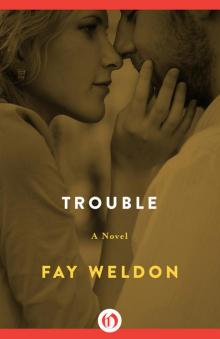 Trouble
Trouble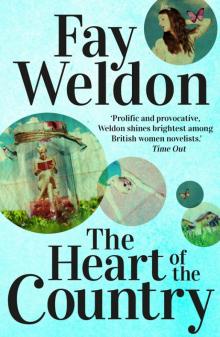 The Heart of the Country
The Heart of the Country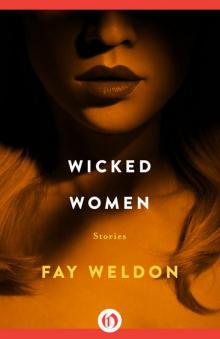 Wicked Women
Wicked Women Mischief
Mischief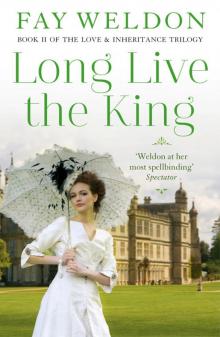 Long Live the King
Long Live the King Remember Me
Remember Me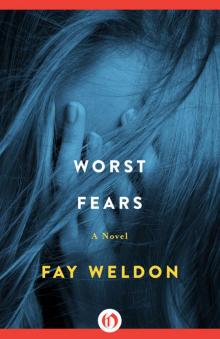 Worst Fears
Worst Fears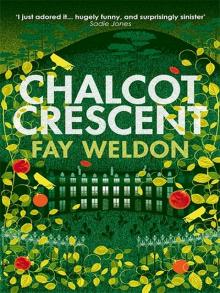 Chalcot Crescent
Chalcot Crescent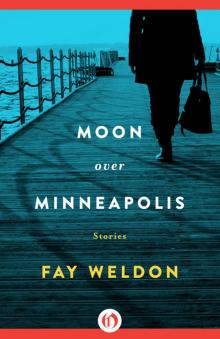 Moon Over Minneapolis
Moon Over Minneapolis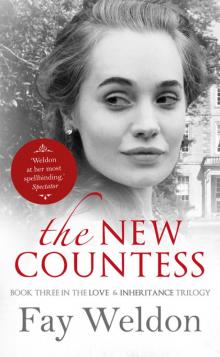 The New Countess
The New Countess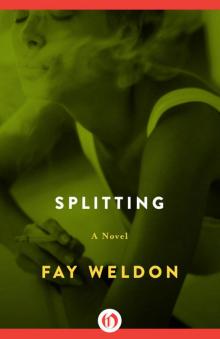 Splitting
Splitting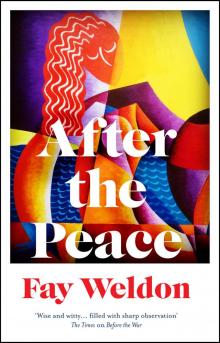 After the Peace
After the Peace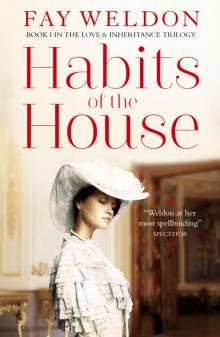 Habits of the House
Habits of the House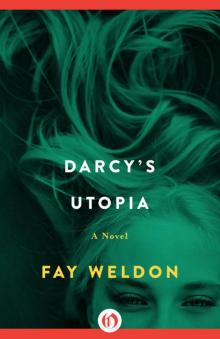 Darcy's Utopia
Darcy's Utopia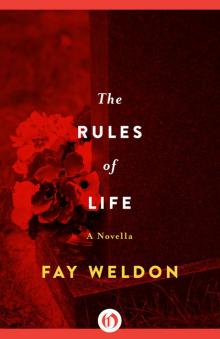 The Rules of Life
The Rules of Life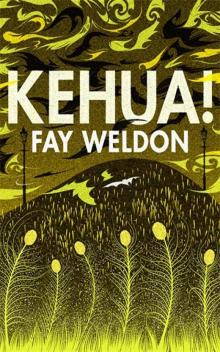 Kehua!
Kehua!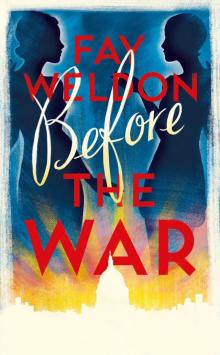 Before the War
Before the War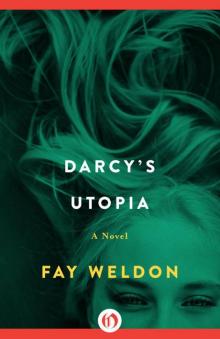 Darcy's Utopia: A Novel
Darcy's Utopia: A Novel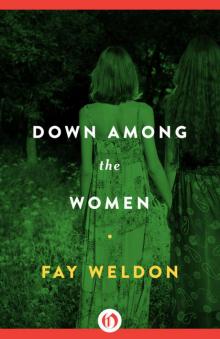 Down Among the Women
Down Among the Women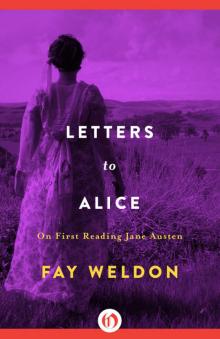 Letters to Alice
Letters to Alice 3 Great Historical Novels
3 Great Historical Novels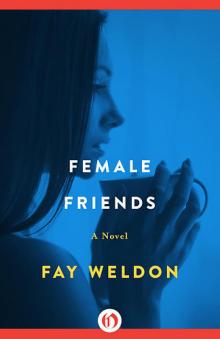 Female Friends
Female Friends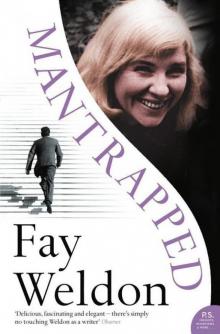 Mantrapped
Mantrapped The Bulgari Connection
The Bulgari Connection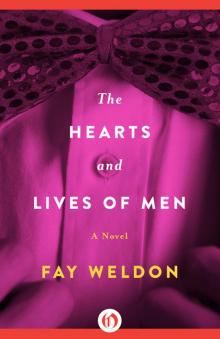 The Hearts and Lives of Men
The Hearts and Lives of Men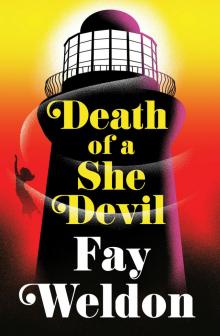 Death of a She Devil
Death of a She Devil